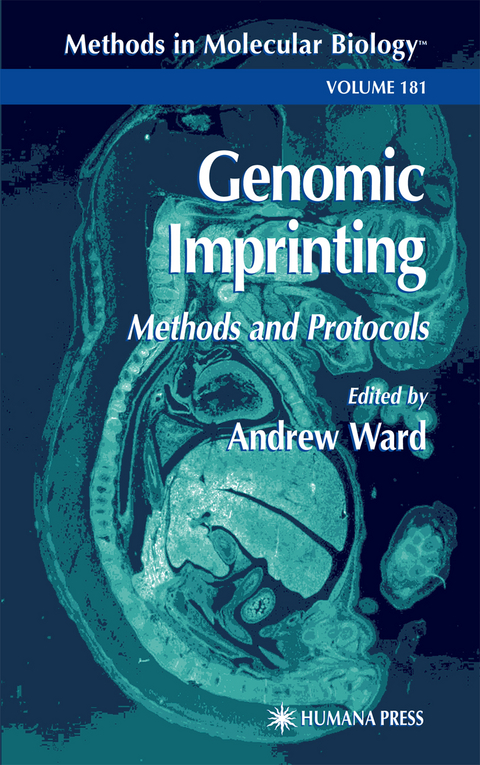
Genomic Imprinting
Humana Press Inc. (Verlag)
978-1-61737-164-6 (ISBN)
Generation of Monoparental Embryos for Investigation into Genomic Imprinting.- Deriving and Propagating Mouse Embryonic Stem Cell Lines for Studying Genomic Imprinting.- Balanced Translocations for the Analysis of Imprinted Regions of the Mouse Genome.- Production of YAC Transgenic Mice by Pronuclear Injection.- A Transgenic Approach to Studying Imprinted Genes.- Methylation-Sensitive Genome Scanning.- Subtraction-Hybridization Method for the Identification of Imprinted Genes.- Identification of Imprinted Loci by Methylation.- Ribonuclease Protection.- Quantitative RT-PCR-Based Analysis of Allele-Specific Gene Expression.- Allele-Specific In Situ Hybridization (ASISH).- RNA-FISH to Analyze Allele-Specific Expression.- Flow Cytometry and FISH to Investigate Allele-Specific Replication Timing and Homologous Association of Imprinted Chromosomes.- Southern Analysis Using Methyl-Sensitive Restriction Enzymes.- A PCR-Based Method for Studying DNA Methylation.- Bisulfite-Based Methylation Analysis of Imprinted Genes.- Direct Analysis of Chromosome Methylation.- In Vitro Methylation of Predetermined Regions in Recombinant DNA Constructs.- In Vitro Methylation of Specific Regions in Recombinant DNA Constructs by Excision and Religation.- Detection of Methyl?Sensitive DNA?Binding Proteins with Possible Involvement in the Imprinting Phenomenon.- Probing Chromatin Structure with Nuclease Sensitivity Assays.- Examining Histone Acetlylation at Specific Genomic Regions.- Purification of the MeCP2/Histone Deacetylase Complex from Xenopus laevis.- Reconstitution of Chromatin In Vitro.- Genomic Imprinting in Plants.
"...a multi-authored volume in which the methods of gene imprinting are discussed in detail in 25 chapters. The protocols are very detailed with multiple schemes and figures." - Journal of Pediatric Endocrinology and Metabolism
| Erscheint lt. Verlag | 10.11.2010 |
|---|---|
| Reihe/Serie | Methods in Molecular Biology ; 181 |
| Zusatzinfo | XII, 377 p. |
| Verlagsort | Totowa, NJ |
| Sprache | englisch |
| Maße | 152 x 229 mm |
| Themenwelt | Medizin / Pharmazie ► Medizinische Fachgebiete |
| Studium ► 2. Studienabschnitt (Klinik) ► Humangenetik | |
| ISBN-10 | 1-61737-164-5 / 1617371645 |
| ISBN-13 | 978-1-61737-164-6 / 9781617371646 |
| Zustand | Neuware |
| Haben Sie eine Frage zum Produkt? |
aus dem Bereich


